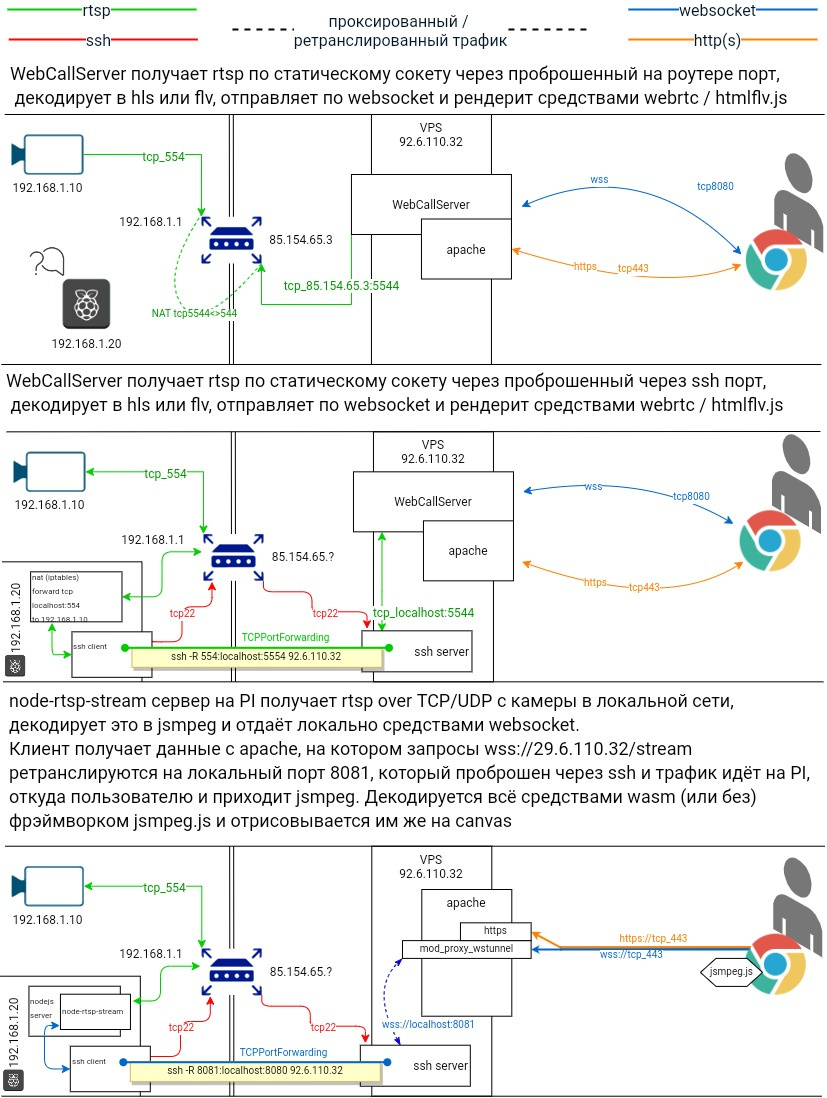Answer the question
In order to leave comments, you need to log in
How to output rtsp stream to a site without a static ip?
Good day! The task is to transfer video from an IP camera to a website without using a static IP address.
Now the scheme looks like this:
An IP camera is connected to the Raspberry Pi via a twisted pair cable, the raspberry is connected to the network via a wi-fi modem. The SIM card has a static IP. A server with Apache and WebCallServer (to broadcast the image to the site) is deployed on Yandex.
Now the maintenance of only one SIM card per month costs 2,000 rubles.
What are the options for solving the output of the image on the site, and indeed the communication of the site with the raspberry without a static IP?
I read about P2P networks, but did not find a way to implement them.
Answer the question
In order to leave comments, you need to log in
On the site, you raise a VPN (for example, OpenVPN), on a raspberry, you raise a client and please let WebCallServer take the stream from the gray IP VPN mesh. How to raise OpenVPN, instructions are half the Internet. As a bonus, you get the security of your stream, which is no longer required to shine on the entire Internet.
A headache-free solution is a thematic cloud service in a compartment with a camera
Try to convert pi rtsp to http stream, send everything via websockets to apache in ya.ru and from there redirect to the client
Another simple option for vps:
1. ssh tunnel with tcp forwarding port (ssh -R 8080:localhost:80 myvps.ya.ru is done from the client
2. On pi there is ffmpeg and nodejs with an rtsp server relay
3. iptables or apache mod_proxy or from vps receive data from a websocket ( php for example ) and relay them through the same web socket (i.e. the stream itself)
It is possible to implement:
1. headless chrome
2. webrtc as a transport (something there with puppeteer seems to be calling)
3. apache on Yandex as a backend for organizing PS access,
if ssh is always at hand, then you can proxy requests directly to pi without unnecessary troubles (the main thing is that the ssh connection on pi is constant ..)

For my clients, I solve this issue through vpn, a vps server based on mikrotik. A tunnel rises from the object, then you can choose: either port forwarding out from the server's IP address, or pouring the video stream into the tunnel from the customer's machine.
Didn't find what you were looking for?
Ask your questionAsk a Question
731 491 924 answers to any question